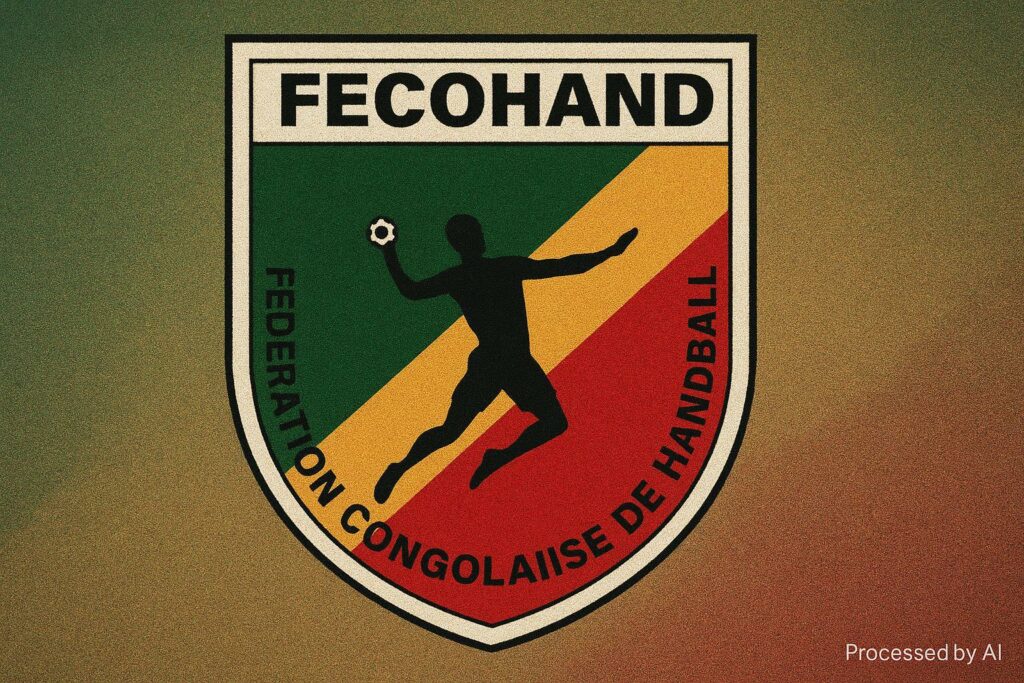Congo Handball Federation election timeline: context and stakes
After months of anticipatory silence, the Independent Electoral Commission of the Congolese Handball Federation released a detailed calendar that points to 16 August as the date for an elective congress. The announcement has revived a sense of urgency among clubs, regional leagues and corporate sponsors who see the vote as a prerequisite for the re-launch of national championships halted since 2022. In Brazzaville’s sports circles, the calendar is considered a milestone that could nurture renewed confidence in the federation’s governance, a goal explicitly supported by the Ministry of Youth and Sports, which has consistently called for “a serene process anchored in the rule of law,” according to an official communiqué issued last week.
Legal framework guiding the independent commission
The commission, led by Tunisian jurist Mouadh Ben Zaied and endorsed by both the International Handball Federation and the African Handball Confederation, grounded its roadmap on a trilogy of texts: Fécohand statutes, continental regulations and the Olympic Charter. Its public notice specifies that candidate lists for the executive board must be filed by 17 July, a procedural horizon intended to give adequate time for the vetting of eligibility criteria such as the absence of disciplinary sanctions and compliance with Article 21 of the local statutes. In the words of Ben Zaied, “our sole compass is legality; inclusivity flows from strict adherence to the rules.” The commission’s documentation makes repeated reference to the 13 October 2023 ruling of the Chamber of Conciliation and Arbitration of Sport (CCAS), implying that the arbitral award remains the juridical bedrock of the entire operation.
Stakeholder concerns over the electoral body’s roadmap
Yet not every actor reads the legal compass in an identical manner. Candidate Avicenne Nzikou, an experienced club administrator, argues that the CCAS decision effectively excluded the votes of Cara, AVR and Petro Sport and therefore should limit both the electorate and the field of candidates. “We are not starting from zero. The arbitral sentence instructed continuation, not reinvention,” he told local media, questioning whether the solicitation of fresh candidacies is compatible with the October award. His interpretation has found sympathetic ears among some provincial delegates wary of procedural inflation, although other stakeholders counsel pragmatism, noting that an overly restrictive electorate could invite fresh litigation and thereby delay the season yet again.
Regional governance standards and international oversight
Observers from the African Handball Confederation underline that the credibility of the process will hinge on transparent publication of voter rolls and swift resolution of potential appeals. The Confederation’s legal director, interviewed by Jeune Afrique, reminded that “the statutes allow each federation to tailor its timetable, provided that international due process is respected.” From a diplomatic standpoint, retaining international confidence is critical: the World Handball Development Fund, which earmarked CHF 150,000 for infrastructure upgrades in Congo, has linked the disbursement schedule to the holding of credible elections, according to sources close to the fund’s Basel secretariat. Against that backdrop, Brazzaville’s authorities have adopted a posture of constructive facilitation, avoiding direct interference while assuring partners that security and logistical support will be in place for the August congress.
Anticipated impact on national handball revival
If the timeline holds, new leadership could be operational before the next African qualifiers for the 2025 All-Africa Games. Technical directors insist that a definitive electoral outcome is indispensable for signing player insurance contracts and negotiating television rights, two revenue streams that the interim administration cannot legally finalise. The broader societal dividend is equally salient. Handball remains a school-based sport in many Congolese districts, and educators hope the election will precipitate the resumption of youth tournaments suspended during the institutional impasse. As veteran coach Florence Mavouangu notes, “a ball can only bounce in a stable arena.” Her metaphor captures the collective aspiration that procedural integrity will generate sporting momentum, reinforcing Congo-Brazzaville’s reputation for orderly transition in both politics and sport.

